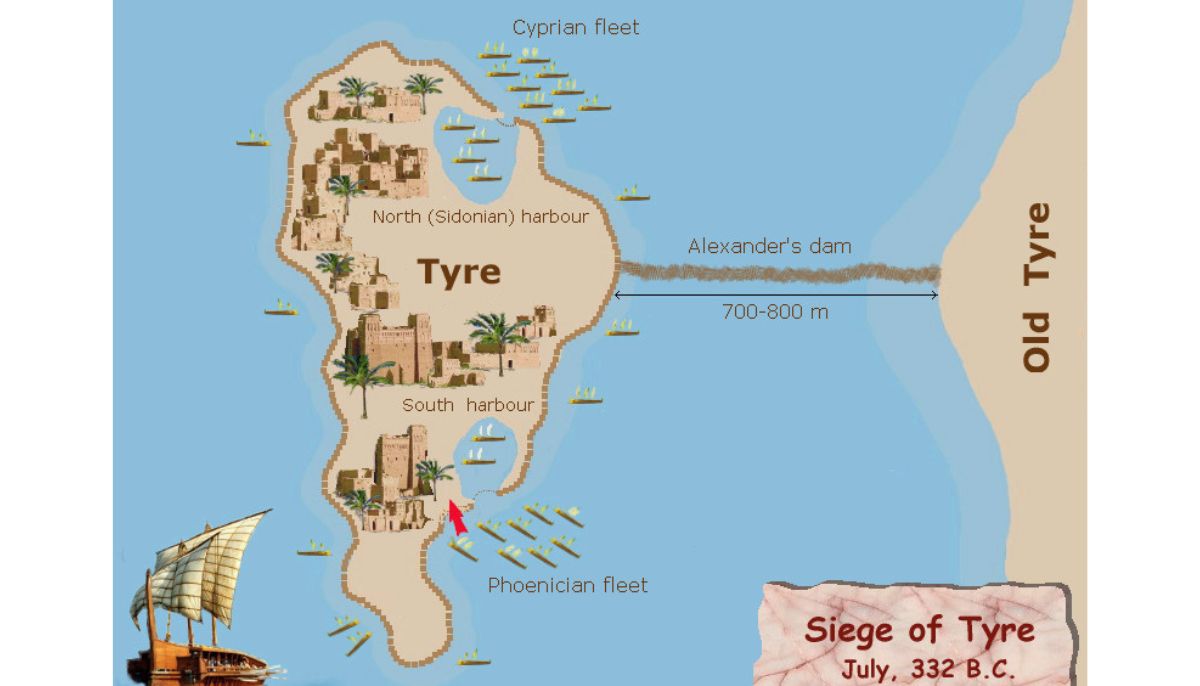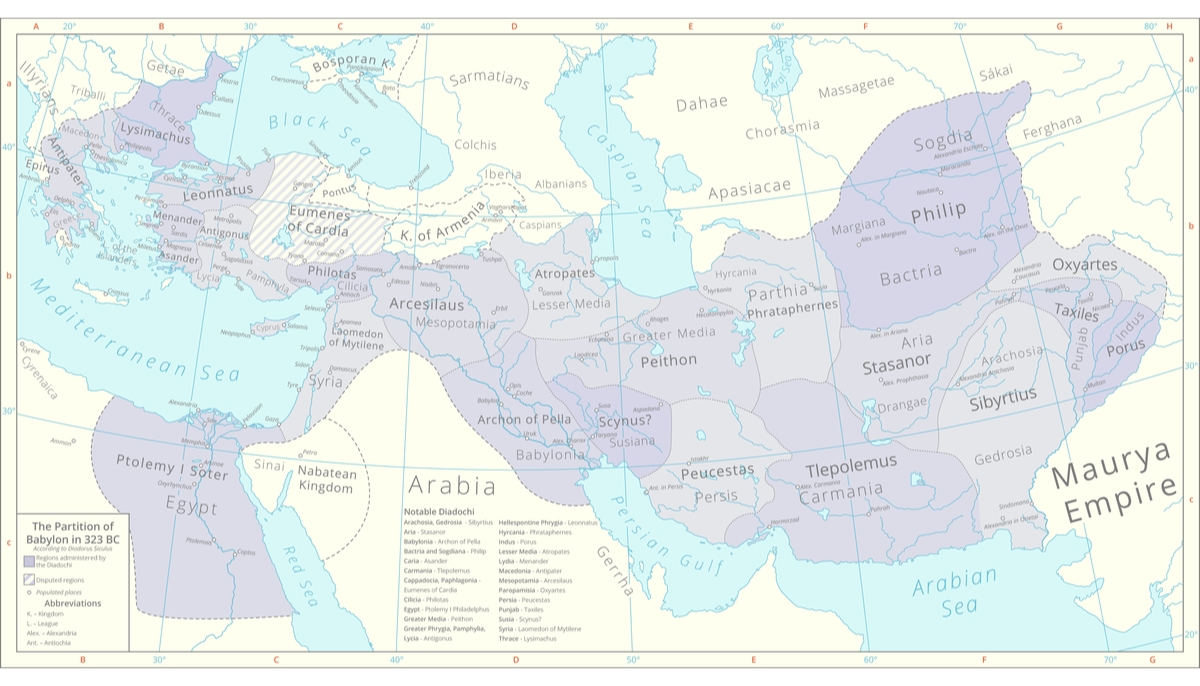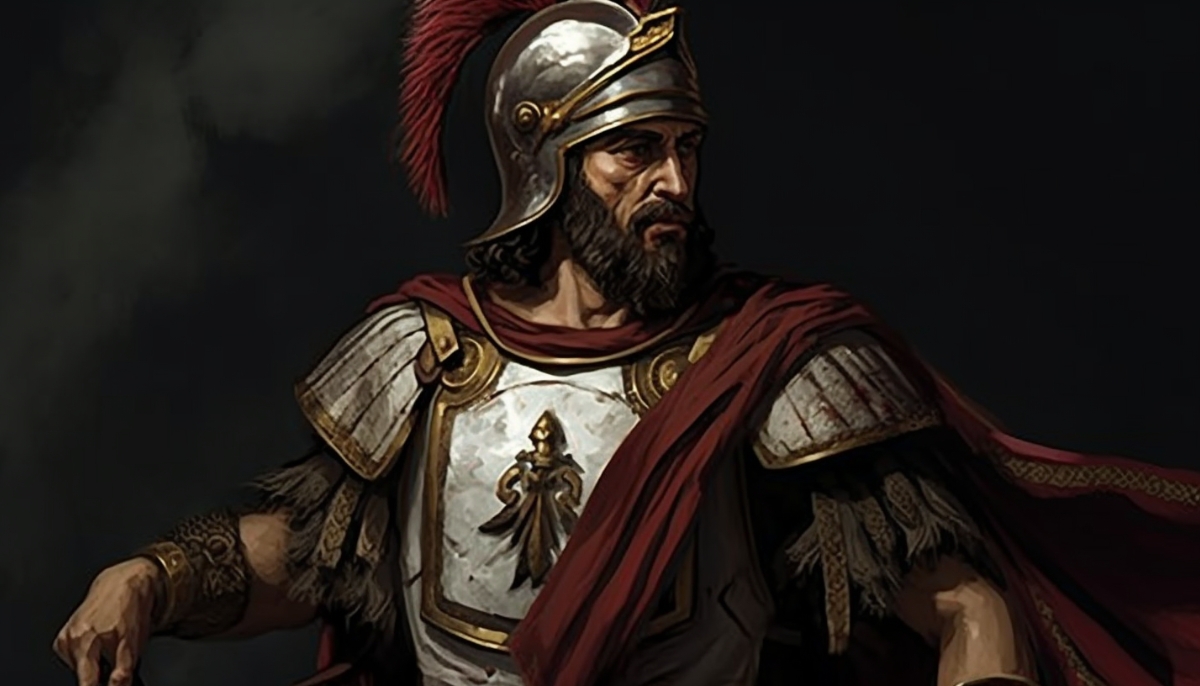Craterus was one of Alexander the Great’s toughest generals and one of his most trusted advisers. He played a crucial role in many of Alexander’s most famous battles, including Gaugamela and the siege of Tyre.
After Alexander’s death, Craterus was embroiled in the Wars of the Diadochi, ultimately leading to his untimely death.
In this article, we will delve into the life of Craterus and his impact on ancient history.
The role of Craterus in Alexander the Great’s military
Craterus was one of Alexander the Great’s closest companions and a prominent general during his campaigns. He was born in 370 BCE in Macedon and grew up in the court of King Philip II, Alexander’s father.
Craterus was a prominent figure in Alexander the Great’s military campaigns, playing a crucial role in many major battles and sieges.
He started his career as a commander of a brigade of the phalanx, the Macedonian infantry formation, but his skill and bravery quickly earned him a more prominent role.
Command of the Infantry
During the Battle of Issus in 333 BCE, Craterus was placed in command of the left wing of infantry, a key position he would hold in many subsequent battles.
He was noted for maintaining his troops’ discipline and cohesion even amid chaotic and intense combat.
Siege of Tyre

Craterus also played a significant role in the siege of Tyre, a key Phoenician port that was one of the last strongholds of the Persian Empire.
He was put in charge of the navy and oversaw the construction of a massive mole, a causeway made of stones and earth, that allowed the Macedonian army to breach the city walls.
Despite his many successes, Craterus was not without his rivals and detractors. He was known to have a rivalry with Hephaestion, one of Alexander’s closest companions and another prominent general in the army.
Additionally, while Craterus was a respected and influential military commander, he was likely below the level of Parmenion, one of Alexander’s most trusted advisors and one of the highest-ranking generals in the army.
Controversy with Philotas and Parmenion
Craterus was also involved in a scandal that would later tarnish his reputation. In 330 BCE, he accused Philotas, the son of Parmenion, of conspiring to assassinate Alexander.
Philotas was tortured and executed, and Parmenion was also put to death, likely due to his son’s alleged treason.
Many historians believe that Parmenion was innocent and that Craterus may have been motivated by personal animosity or political maneuvering.
Craterus was a prominent and respected figure in Alexander’s army, known for his military skill, bravery, and loyalty to his leader. However, his legacy was somewhat tainted by his involvement in the Philotas affair and his rivalry with Hephaestion.
Craterus, after the death of Alexander
After Alexander the Great’s death in 323 BCE, Craterus found himself in a challenging position. He was stationed in Cilicia, preparing a massive fleet for a planned assault on Carthage, and was not present in Babylon when Alexander died.
This meant that he was not immediately involved in the tumultuous power struggles following the king’s death. Many historians believe that if Craterus were present at Alexander’s side, he would have been named his direct successor.
Craterus, the regent
However, Craterus was named as one of the two regents for Alexander’s mentally deficient half-brother, Philip Arrhidaeus, who had been designated as the nominal king of Macedonia. The other regent was Perdiccas, a powerful general who had been one of Alexander’s closest advisors.
However, because Craterus was not present in Babylon to assert his authority, this allowed Perdiccas to quickly dominate the role, consolidating his power and becoming the de facto ruler of the empire.
Craterus continued to work on his fleet in Cilicia, preparing for the planned assault on Carthage. However, this plan was ultimately abandoned following Alexander’s death, as the generals who inherited his empire focused on consolidating their power and securing their territories.
- What if Alexander the Great didn’t die?
- Could Alexander the Great have conquered Rome?
- Could Alexander the Great have conquered India?
Role of Craterus in the First War of the Diadochi (321-319 BC)

Craterus became involved in a rebellion against Perdiccas, who had emerged as the most powerful of the Diadochi. Along with Antipater, Antigonus, and Ptolemy, Craterus joined forces to challenge Perdiccas’s dominance and assert their power in the empire.
To cement his alliance with Antipater, Craterus married his daughter, Phila. This marriage alliance was not unusual among the Diadochi, who frequently used marriage to build political partnerships and secure power.
Death and Legacy of Craterus
In 320 BCE, Craterus faced off against Eumenes, one of Perdiccas’s generals, near the Hellespont. The battle was anticipated to be a decisive win for Craterus, given his esteemed military capabilities.
Yet, in what is often considered a fluke, Craterus was defeated and killed. His defeat sent shockwaves through the Hellenistic world.
How Craterus is remembered
Though he was a formidable military tactician, Craterus never established his own kingdom in the chaotic era that followed Alexander’s death. He is often overshadowed by figures like Ptolemy and Seleucus, who successfully founded dynasties that lasted for generations.
However, it’s worth noting that Craterus could have become the most significant of all the Diadochi had he been in Babylon when Alexander died.
Circumstances and timing played crucial roles in limiting his legacy. Had he been present at that critical juncture, the landscape of Hellenistic history might have been drastically different.






